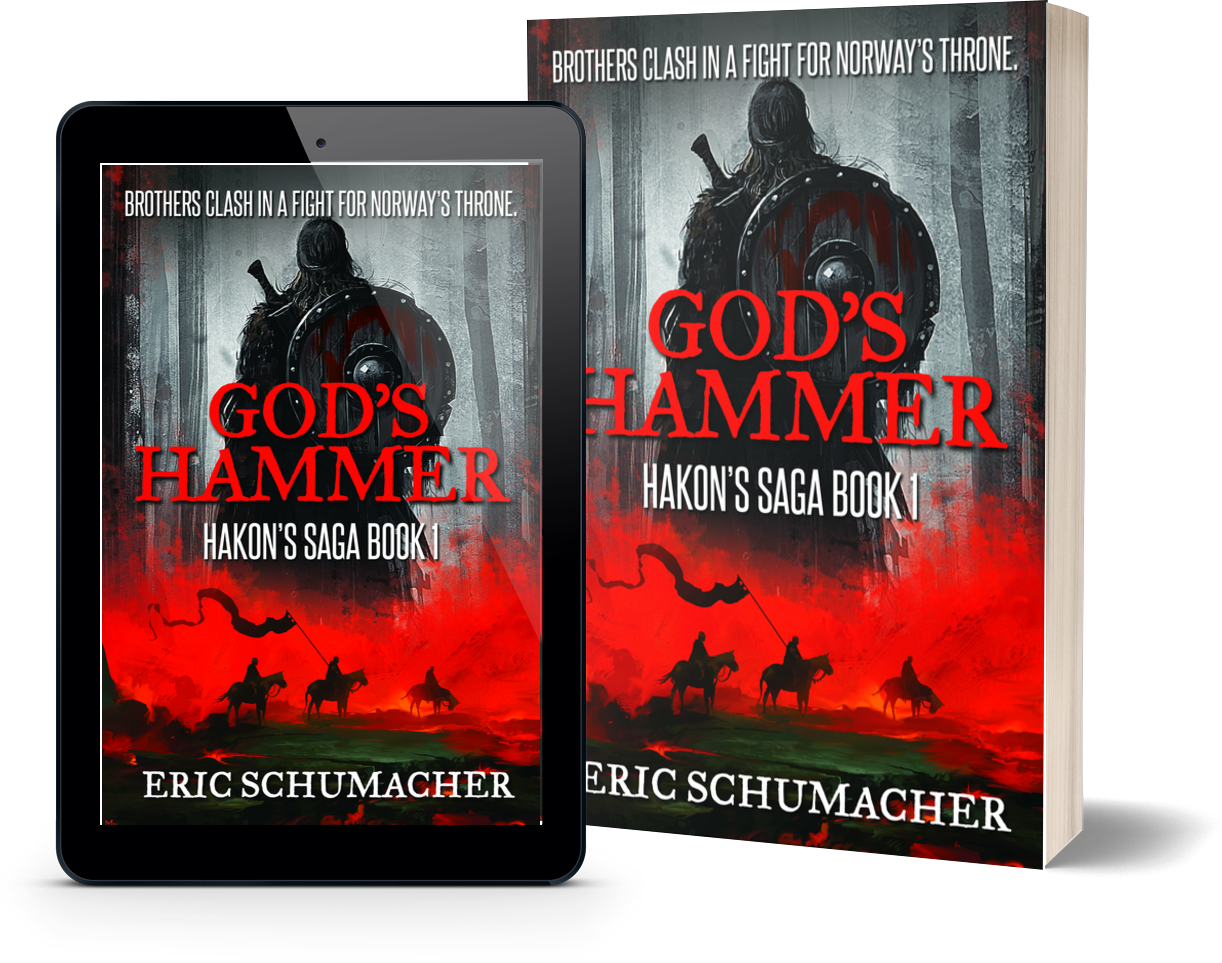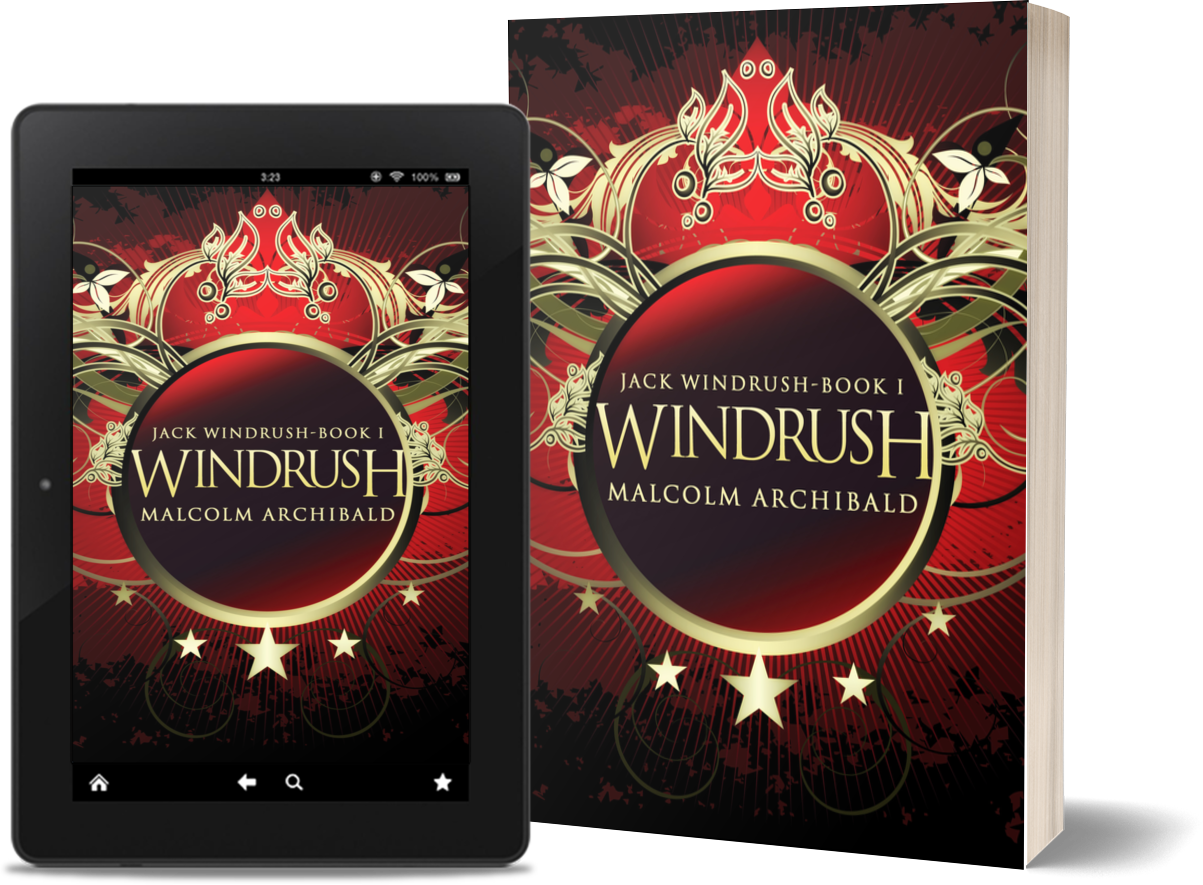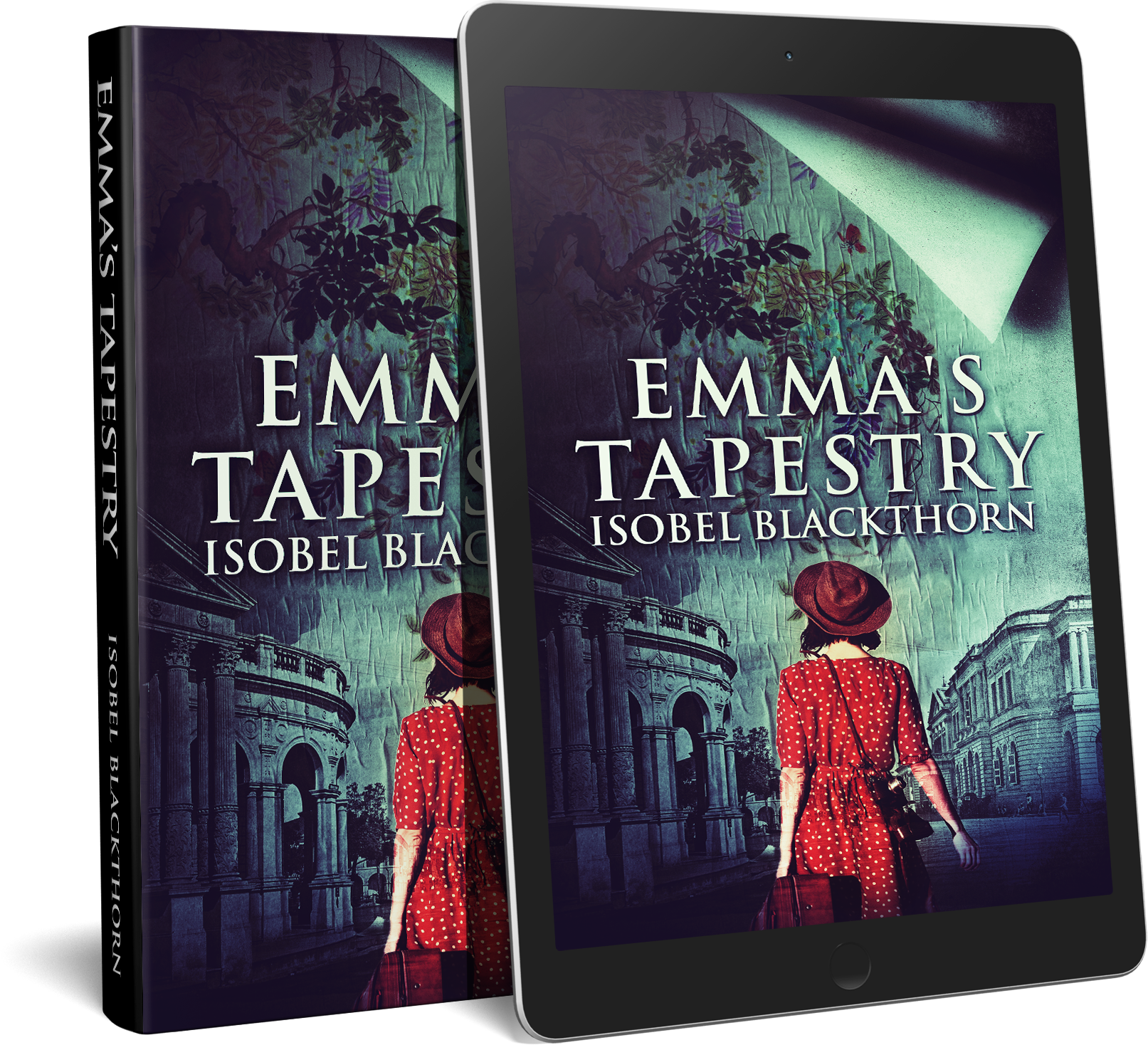Historical fiction is like a time machine, whisking readers away to bygone eras where they can rub shoulders with emperors and empires, witness revolutions, or navigate the society of ancient civilizations. It is a genre where the dusty annals of history pulse with life, color, and human drama. Historical fiction not only entertains, but also offers insight into the human condition against the backdrop of the past.
We’ve rounded up some of our best historical fiction below, as of November 2023. These stories have been chosen for their ability to not only present a period in history but also to tell a compelling story that resonates with modern readers.
All of the books here are available in eBook, paperback, and some in audio as well. If you enjoy one of the stories below, please don’t forget to leave the author a review! Don’t agree with our choices? Please leave a comment and let us know your favorite :)
Books featured on this page
God's Hammer (Hakon's Saga Book 1) by Eric Schumacher
No Room For Regret (Cullen - Bartlett Dynasty Book 1) by Janeen Ann O’Connell
Penny Flame - A Novel Of The Apache Wars by John Reinhard Dizon
Stone and Steel: A Novel Of The Roman Empire (Colossus Book 1) by David Blixt
Gilded Summers (Newport's Gilded Age Book 1) by Donna Russo Morin
Windrush (Jack Windrush Book 1) by Malcolm Archibald
Wyrd Of The Wolf (Wyrd Of The Wolf Book 1) by John Broughton
God's Hammer (Hakon's Saga Book 1) by Eric Schumacher
Book excerpt
The congregation worked its way into the church as the bells of the Old Minster began to chime Terce. As the people found their places, dust rose and danced in the sunlight that stabbed through the open windows in the gray stone walls. More people entered, and the air quickly heated and thickened with stale breath and pungent body odors.
Hakon pulled irritably at the white baptismal gown that found every crack and crevice on his sweating body. King Athelstan, who stood to his right, placed a calming hand on his arm, but to no avail—Hakon continued to fidget. To his left, Father Otker stared reverently at the great rood hanging behind the altar, ignoring the sweat that beaded at his temples and above his lips as they moved in silent prayer.
When the church had filled to capacity, the esteemed bishop of Winchester, a rigid-limbed, small-framed man named Frithestan, approached the altar. He bowed to the crucifix, crossed himself, then turned and looked out into the congregation. “Let us pray.” The bishop’s rich baritone voice lingered in the still air like the beat of a drum.
Hakon bowed his head with the rest of the congregation, but fear led the boy’s thoughts elsewhere. Visions of his old gods assailed his mind. They stared down at him from their seats in Asgard, coldly judging. Odin’s one eye glared. Thor thundered his displeasure by pounding his hammer. Hakon’s blood chilled.
Above him, hideous gargoyles protruded from the stone walls, reminding him of the underworld that waited in the Christian faith. The gargoyles seemed to know his heart, to read his mind. They waited on his thoughts like ravens on the dying. Speak, they urged while licking their fangs. Beseech your false gods. Hakon jerked his eyes away from their cold stares.
The Mass began in Latin, and the blank-faced crowd responded with mumbled words they had learned by rote. As the Mass progressed, the hum of voices escalated, echoing off the ancient stones.
Now, Hakon’s mind urged. Now, whilst they speak. His eyes shot up to the gargoyles. They watched. Beware, they snarled as their claws gripped their perches and their bodies coiled to strike. We hear all.
Hakon looked away, heart thudding. Odin, hear my . . . my prayer. I do not . . . mean—
The gargoyles’ snarls turned to growls. We have warned you, boy. Try again and we will pounce.
Defeated, Hakon fell silent. A wave of cold dread coursed through his veins. Despite the heat, he shivered.
No Room For Regret (Cullen - Bartlett Dynasty Book 1) by Janeen Ann O’Connell
Book excerpt
‘I couldn’t look at him; he was wretched and I’m furious. We were getting along fine. There wasn’t heaps of money left at the end of the day, but there was enough to feed and educate the boys and pay the rent. Now he’s being sent to New South Wales and I’ve got to bring them up on my own.’
Sarah Blay sat in the tiny kitchen of her Spitalfields home with her mother and youngest son. Using her hands, she wiped her reddened, sore eyes. Eyes that had been dispensing tears since her husband’s sentence that morning.
Her mother picked up three-year-old John who was pulling Sarah’s hands away from her face, trying in vain for her attention. John was the youngest; Sarah wasn’t worried about the effect her husband’s transportation would have on him, but the older two, James Jr, eight, and William, six, would know their father’s predicament.
‘Ye’ll have to find a way to keep the apprentice on,’ Sarah’s mother reasoned. ‘He can keep workin’ for ye till ye can sell the business. Then at least ye’ll have money comin’ in. The lodger will stay too. She’s nowhere else to go.’
Sarah knew her mother was right; an immediate solution could be found. The long-term worried her.
‘He’ll be moved to one of those prison hulks in the Thames before he’s transported. It’ll be harder than Newgate to see him, to bring him food and clothes.’ Sarah said.
Her mother thundered ‘I don’t know why ye worried about him going to them hulks. Ye’ll never see him again after he’s sent to New South Wales. How many of them has ever come back? Do ye know? None, that’s how many.’
The tears again welled, they ran down Sarah’s already sorrow stained cheeks. John, whimpering at his mother’s distress, climbed up onto her knee, and flung his arms around her neck. Sarah hugged her youngest child and wept into his little shoulder; overwhelmed with anger and fear.
Ignoring her daughter’s distress, Sarah’s mother continued: ‘The lodger, what’s ‘er name?’
‘Mary Wood.’
‘Well, Mary Wood’s goin’ to have to help with the boys so ye can see to the business. Ye’ll ‘ave to concentrate on the here and now to keep the boys fed and a roof over ye heads.’
Her mother’s pragmatism forced Sarah to focus on what had to be done. Planning the survival of herself and the boys, her mind turned to the necessary steps. The apprentice had one year on his indenture to serve, and the Cordwainer’s Guild sometimes allowed widows to take over the training of apprentices. She would have to convince the master of the Guild that James being transported for life made her as good as a widow.
Penny Flame - A Novel Of The Apache Wars by John Reinhard Dizon
Book excerpt
The beautiful red-haired woman trudged along the foggy mountain trail, her bare feet crunching on the ashen gravel floor that was strewn with broken bones and human skulls. She was determined to reach the top of the steep passageway though she shivered violently in the freezing cold, clad only in a white satin nightgown and a gossamer shawl. Above her, hawks, crows and vultures filled the sky while bats fluttered from one mountainside alcove to the next.
From the valley below she could hear a man’s voice calling her name, but there was no turning back. She forged ahead though her lungs were seared by the chilly mountain air, her eyes burning from the smoke that swirled along the trail. Her lips were parched and cracked and she was desperate with thirst but dared not waver from her task.
At length she reached the crest of the trail and was able to peer down into the ravine where the object of her search awaited. She stared aghast at a field of skulls carpeting the ground for over forty yards in a bowl-shaped area enclosed by a towering rock line. She could see wild animals peering out between the rocks above, crouching as if ready to spring. Against the far wall of the ravine sat a skeletal figure on a throne of human bones, staring at her through eyes as flaming coals.
“I’ve been waiting for you,” the figure said in a voice that resembled the screech of hinges on a dungeon door.
She found herself gesturing in his direction, her hands suddenly burning as fire, but was distracted by the voice behind her, the man crying out her name.
She twisted around and, sensing he was in mortal danger, reached out to him. He grabbed her hands but, at once, they were both horrified as her arms turned to ash and disintegrated before their eyes…
“Mony!”
“What…”
“Geez, girl, you scared the heck out of me,” Tommy leaned over her, seated on the bed alongside her in the dark room. “Now this stuff ’s giving you nightmares.”
Stone and Steel: A Novel Of The Roman Empire (Colossus Book 1) by David Blixt
Book excerpt
THE CELEBRATIONS LASTED straight through the night. Word of the victory had gone back to Jerusalem, and the city's women, children, and elderly had poured out to bring their men food and water. Dead Jews were lovingly returned to the city. Pyres for the Roman dead were made from broken wagons and siege engines. Around the huge fires there was dancing and singing, and many prayers of thanksgiving.
Dawn found Judah walking aimlessly among the jubilant Judeans, the eagle still clutched in his hand. He had been carousing all night, and now exhaustion and wine made him feel muddled and stupid. But still, whether cavorting with the crowds or searching the dead for loot, every fighting man stopped to shout acclaim for the hero of the hour.
It wasn't pride that kept Judah holding the standard. The damned thing was glued to his hand by gore, and he was too tired to pry it free. Seen up close, it was a homely image. Crude, not at all magnificent. The likeness of Nero Caesar was laughable, worse even than the one on coins. The eagle's wings were lopsided – no, that was from where Judah had crushed the aquilifer's skull. The golden talons clutched the engraved Roman numerals XII.
It might not have been much to look at, but a lost eagle was a grave blow to Rome's immortality. Only a handful had ever been taken, and Rome had proved it would do anything to reclaim them. Famously, Augustus had negotiated a humiliating peace with Parthia in order to recover the eagles of Crassus, dressing it up as a Roman military victory. What would the Romans not give to get this eagle back? Judea's freedom was a small price for Roman honour.
He'd pulled a long tunic over his head at some point to cover his nakedness. Blood and offal made the garment cling to him in a most ill way. He was sticky all over, his leg was throbbing where the hobnails had torn him, and he had countless scrapes, cuts, and bruises. There was a gash along his chest where a Roman sword had nearly laid him open.
Dazed, he belatedly noticed that some men were picking through Roman corpses looking for arms and armour. I should do that. He attempted to pull the staff out of his grip, but his left hand became lodged in the sticky mass of gristle and hair as well. Laughing at the absurdity of it, he was shaking at his fingers when a quiet voice said, “Step on the haft.”
Levi. The tall man seemed to be Judah's own shadow. Obediently, Judah bent over and used his foot to wrench the broken staff from his grip.
Hands free, Judah made a proper introduction. “Judah ben Matthais. Thanks for saving my life.”
“Levi ben Patroclus. You're a young fool, and brave. Such men need protection.”
“I've never seen anyone fight like you.”
“I did not take the eagle.”
“Are you a soldier..?”
“A bodyguard.” Levi grimaced. “Though after last night I'll need a new employer.”
Judah was wondering if he should apologize when someone shouted his name. “Judah!” The harsh voice made Levi's hand drop to his sword. But Judah knew the voice – that idiot Phannius. “I've been looking for you!”
Gilded Summers (Newport's Gilded Age Book 1) by Donna Russo Morin
Book excerpt
The man called Birch led us through the marble hall. I walked on tiptoes. I walked as I once had through a grand cathedral back in Italy.
He hurried us along. I had only seconds to glimpse a dining room, one so large it could have served as a great hall in a castle from long ago. It glittered; gold sparkled everywhere. Across from it, an alcove, each end flanked by glass and gold cabinets. On display were more treasures of silver and gold, china and porcelain. I slowed; if I could, I would have run.
The man hurried us along.
We passed through two dark, carved doors; we passed into another world. Inside these doors, we entered a small landing.
“This is a ladies' powder room,” Mr. Birch finally decided to speak to us. “The Beeches has some of the most modern plumbing in all of Newport.” He turned hard eyes on me. “Family and guests only.”
I returned his look. Nothing more.
The snobby man spoke with such pride; you would think this enormous place belonged to him. I suppose in a way he thought it did.
Everything about Birch was stiff, his perfectly pressed cut-away, pristine white shirt, large black puff tie with its big, fancy knot bobbing as he spoke, but especially the stiff tone of his voice. Did he speak to everyone with such cold flatness or did such a chill frost only my father and me? Time would tell.
My father nudged my arm and gave me 'the look.' I translated.
Such looks came constantly during our journey to America. I saw more of them than I did the passing ocean.
Mr. Worthington had paid our fare, thirty dollars each… thirty dollars to travel in the bowels of one of the great steamships crossing the ocean faster than the wind. It was a week living in hell.
Not allowed on deck, I had begun to dream of fresh air before the journey ended. They fed us little else but soup or stew, we slept in huddled masses on the floor in our clothes beside our luggage and had only salt water to wash ourselves.
Few of the others understood the sharply delivered instructions of the ship's crew given only in English. I was one of the few.
My role as translator had started then, and though I tried to teach Papa the language through the long empty hours on the ship, he had learned to say only a few words; he understood even less. Instead, he would give me 'the look' and I would translate as best I could.
The ship docked in New York. We rose up from our burial place and saw the sky, breathing deep. The sight of the giant lady and her torch overwhelmed us. We had heard of her, her welcoming. The people who worked at her feet were not so kind. I feared, despised, and pitied them. Their jobs were difficult; they could not show us too much kindness. To them, we were no different from the colored, what Italians called mulignane. The nastiness of it became my reality. They stripped away our humanity; we could have been heads of lettuce. Yet they were just doing their work.
Windrush (Jack Windrush Book 1) by Malcolm Archibald
Book excerpt
Ten years. Jack leaned on the rail of the Peninsula and Oriental liner Ripon and watched the harbour lights of Southampton fade into the bleak distance. The homesickness increased as nausea rose in his throat. The authorities had told him the 113th would be in India for at least ten years. He would not see England again until he was thirty years old; if he survived. The steady chunk of Ripon's paddles only increased his depression.
'Cholera, fever, loneliness, a hundred different types of diseases they have not even identified yet.' The educated tones drawled out the words in between long pulls at his cheroot. 'You are going all the way out East, are you not?' His eyes were fringed with lashes as long as any girls.
'I am,' Jack agreed. He didn't feel like talking.
His companion did. 'I thought so; you have the look of a man who is saying goodbye to England for a long time.' He took another pull at his cheroot. 'It can't be long enough in my case.' He tossed the cheroot over the rail and watched it spiral down until the dark water extinguished it.
He wants me to ask why.
Jack said nothing. The lights of Southampton were a dim glimmer through the haze.
'Do you know India?' The man lit a second cheroot.
'I was born there,' Jack said unguardedly.
The man raised a weary eyebrow. 'Oh, an Anglo-Indian are you?'
'No – military.' Jack resented the implication that he was from one of the civilian families who made their careers in India.
'Military background? I didn't see you at Addiscombe.' The dark brown eyes were as innocent as Eve's serpent.
Addiscombe. That's the training school for the army of the Honourable East India Company; he is a John Company officer.
'I wasn't there,' Jack said.
'You're in a Queen's regiment then; which one?' The questions were relentless as the officer probed deeper into Jack's situation.
Jack nearly gagged as he spoke the name. '113th Foot.' He couldn't hide the bitterness as he added, 'The Baby Butchers.'
The officer gave a little smile. 'I am George Lindsay, soon to be of the Madras Fusiliers.' He held out his hand. 'What name did fate bless you with?'
Jack took the hand. 'I am Jack Windrush.'
Lindsay leaned slightly closer. 'Windrush – now there's a famous name. You're not related to the Windrushes, are you? The famous Fighting Will of the Royal Malverns?'
Jack instantly denied any family connection. 'Only by name.'
'I thought not. If you were, you'd be going into the Royals and not the 113th .'
Wyrd Of The Wolf (Wyrd Of The Wolf Book 1) by John Broughton
Book excerpt
Kingsham, West Sussex, February 685 AD
“Come, Nelda,” Cynethryth said to her erstwhile nurse, now handmaiden, voice muffled within the chest containing her clothing, “help me find a dress for tonight. Do you think the red one? Bright for a joyous feast!”
“Dear heart, choose the finer weave of the green and it better sets off your eyes. Why so troubled? Move aside, let me bring forth what you need else you will have everything in disorder! There, the grey mantle with the broidered hem and the white silk headdress.” She spread her hand under the cloth. “See, as fine as the wing of a damselfly! Now, where is the green dress? Ah, now we have everything!”
The older woman bustled about arranging clothes on the bed before unbraiding and combing out her mistress’ hair till it hung lustrous down her back.
“We must plait it again as befitting one betrothed.”
“More’s the pity!”
The servant halted her patient task, “How can you say such a thing? Is that what ails you? He’s a fine young man, tall and blessed with fairness of brow, soon to be King of the Kenting and you his lady.”
“Nelda, to be the king’s lady I care not! What use is a fair countenance if the bearer pleases the eye but not the heart? He is given to base jests and supping ale.”
“As are all men!”
The two women shared a reflective silence at last broken by a sigh from Cynethryth, followed by, “And yet I marry for love.”
“Child, you bewilder me. First, you say — ”
“Oh, Nelda, have no truck with a whimsical girl. Six and ten years make of me a woman. It’s on duty I dwell.” A toss of her blonde tresses elicited a growl of annoyance and a tug at the half-completed braid, making her wince. “Still,” she flicked at a reed on the floor with the toe of her shoe, “I wish Eadric had not forsworn the gods of our forefathers.” She ground the rush underfoot, “With the man, I shall not espouse the god…”
A knock disturbed them before she, hair braided, reached for her clothes on the bed. Peering past her handmaid she made out a girl of three and ten at most. Barefoot, she wore a coarse woven brown dress down to her ankles, tied at the waist by a length of string. This sparrow of a person wrung her hands and shifted from foot to foot.
“My Lady,” she piped, her voice a-tremble, “they sent me to tell you to bring all your things at once to the hall. There’s no time to lose!”
The girl turned to run off but Nelda grabbed her by the arm and hauled her back.
“They?” she said, “who are they to send orders to my Lady? What’s the fuss about?”
Cynethryth drew near, smiled at the waif and noted the prettiness under the grime and short-hewn, unkempt hair.
“Child, be calm. Tell me now, what’s amiss that we should flee to the hall?”
The girl rubbed her arm where the older woman had seized her. Eyes darting, she said, “Oh my Lady, he spied a host in the woods and they do be comin’ to attack as when it gets dark. Soon, see?”
“He? Who?”
Impatient, the child-woman fair hopped on the spot and with an insolent roll of the eyes as if to attribute dullness of wit to the noblewoman, said, “Why, him as leads them there islanders. Hurry, Lady, them’s goin’ to bar the door!”
The messenger spun on her heel and dashed away.
Aghast, Cynethryth turned to her servant, “Father!” she said. “He sought a sacred grove in the woods and chanced on an enemy host! Quick! Throw those clothes into the chest and we’ll carry it between us to the hall.”
Not being a strongbox for money and jewels but a light softwood box, they made good progress. Still, they halted several times to avoid the headlong dash of men and boys heedless of aught but the need to seize weapons and reach the palisade. The confusion rendered hope of locating her father futile so Cynethryth, aware she, like the other women, would hinder the defence of the stronghold, obeyed her orders and entered the hall.
Calamity Jane - How The West Began by Bryan Ney
Book excerpt
The canvas door flaps of the Canary home twisted lazily in the breeze, causing shards of light from a late afternoon sun to dance gently on the dirt floor.
“Come on now, Jane. I told Doctor Glick you would bring the puppy to him today,” Ma said. “You’ve dawdled long enough.”
Charlotte had really mended her ways in the last few weeks. She didn’t care so much about the gossip, but when Lana had started asking questions that she didn’t really want to answer, she had sobered up, and as far as Jane could tell, ceased her illicit sexual exploits. Ma now took in laundry to make money. This appeared to be a much less lucrative enterprise than prostitution as far as Jane could see, however, as the family seemed to be in more dire financial straits than ever.
“You be respectful to the doctor, Jane,” Ma said.
“Long’s he don’t treat me like I got some disease, we’ll get along fine.” Jane scooped up the squiggly little puppy in her arms and cuddled him while he licked her face.
“You act respectful, however he treats you,” said Ma.
It grated on Jane to take lessons in propriety from such a fallen angel as Ma, but she held her tongue. Lana ran over to say goodbye to the puppy, and giggled as he licked her face as well. Then Jane was off for Dr. Glick’s. She didn’t know much about him other than that he rode a magnificent white stallion with an ornate Mexican saddle and silver stirrups around town, and he lived on a small ranch just over the hill on the road to Salt Lake City.
Jane walked slowly, allowing the puppy to follow her along the path, stopping to sniff and investigate whatever aroused his curiosity, which seemed to be nearly everything. He brought Jane a stick and dropped it at her feet, so she gave it a little toss. The puppy caught on to the “fetch” game pretty quickly for such a
youngster, so Jane tested him by tossing the stick farther and farther away as they proceeded down the path
to the Salt Lake City Road.
Upon reaching the road, Jane heard the rumble of a big supply wagon coming over the hill. It was mostly Mormons who drove wagons north on the road from Salt Lake City to Bannack. They were sturdy, industrious, and wily. Pa dismissed them as a bunch of bigamists, but they were the town’s lifeline for supplies, and they were always polite to Jane. She scooped up the puppy as the wagon approached.
Something was wrong. The full-bearded driver met her gaze without changing his grim expression. The wagon came closer, and she saw blood on his coat. As the wagon passed, through the cloud of dust came a sight that knotted Jane’s stomach. The limp form of a man bounced like a rag doll. The wagon forded the creek and the driver reined in his team of oxen in front of the dry goods store. Jane followed, carrying the puppy in her arms across the bridge.
Emma's Tapestry by Isobel Blackthorn
Book excerpt
The following morning, Ernest went to work, leaving Emma to spend the day unpacking and arranging the rest of their things. She took her time, avoiding exertion, but by lunchtime she was fanning herself and staring at walls, bored. After eating the sandwiches the cook – whose name, Emma discovered, was Chun – had prepared, Emma wandered outside to inspect the pretty bushes in the garden. Some were in flower. She had never seen such flowers, so large and colourful and scented. She had just strolled over to a bush in full bloom when a very English-sounding voice called out, ‘Yoo-hoo,’ taking her by surprise.
A woman appeared in a gap in the dense foliage separating the two properties.
‘Hello.’ She beamed at Emma. ‘Welcome to Orchard Road.’ She had a strong, loud and distinctly plummy voice typical of the British upper classes, and she continued in something of a gush. ‘You must be the new neighbour. I must say I’m delighted to find another Englishwoman in the street.’ She reached forward and held out her hand. ‘The name’s Dottie. Which I probably am, but you will just have to make your own mind up about that. And you are?’
‘Emma.’ She shook the woman’s hand. ‘Emma Taylor.’
‘Your husband a Guthries’ man?’
Emma nodded, holding the older woman’s gaze. She was tall, thin and fashionable. Emma felt diminutive in her presence.
‘We won’t be seeing too much of him, then. How are you settling in? Have everything you need?’
‘I think so. I really have no idea.’
‘Early days. You’ll soon find your feet.’ Dottie paused, her mouth falling open. ‘But you are not English at all, are you, darling. You’re American. How fascinating.’ She clapped together her hands. ‘Now, I want to know everything about you.’
The woman grinned. Emma shrank back inwardly. No answer formed in her mind, but Dottie didn’t seem to need one.
‘I tell you what. I have nothing on this afternoon and I’m at a loose end. Would you be a dear and keep me company? We’ll have tiffin.’
‘What time will that be?’
‘Right this minute. How does that sound?’
She thought better of saying she had just eaten. Besides, she was curious to hear what Dottie had to say about Singapore.
Every Year I Am Here by Joanna Beresford
Book excerpt
After the morning’s excitement had died down, any faint hopes Lillian held about wretched Mary’s presence being a one-time occurrence foundered. The rest of November passed in a boring blur as she wistfully watched Donald’s frequent comings and goings from the house. Sadly, he appeared to revel in his new status as a rescuing hero. Mary had gladly handed over a calling card with her address printed in smart cursive as she left so Mrs Shaw and Olivia would know where to deliver her salvaged gloves – the same gloves Lillian had to hang out to dry and carefully iron. She’d petulantly turned one of them inside out and snipped a tiny thread inside one of the fingers, using a pair of nail scissors she found on Mrs Shaw’s dressing table. The ends satisfactorily sprang apart. It would take several wears for the deed to have its desired effect and Lillian was confident by then she wouldn’t be suspected as a saboteur.
Mrs Shaw was distracted by the mounting events in her social calendar. ‘I feel as though the silly season has come early this year,’ Lillian heard her say to her husband over breakfast.
Mr Shaw studiously hacked at the top of his boiled egg as his wife moaned about all there was to do, and said, “Hmm,’ in all the right places.
Taking the buggy out with Olivia to pay Mary and her mother the expected visit heralded yet another invitation for Mrs Shaw to squeeze in. Mary’s mother Elizabeth asked Mrs Shaw whether she and Olivia would like to attend a fundraising luncheon for the Society of the Prevention of Cruelty. It would be taking place the following Wednesday at their home. Mrs Forsyth explained it was the least she could do in exchange for the kindness they’d shown Mary.
Lillian learned those details at dinner that evening as Mrs Shaw and Olivia gossiped excitedly about the Forsyths’ crystal chandelier and fine carpets.
‘Oh, they’ve got six housemaids, Henry. Six!’
Mr Shaw took his time raising his napkin to wipe the edges of his mouth. ‘We’re not getting any more maids, Edith.’
Mrs Shaw wouldn’t allow her husband’s lack of enthusiasm curb her own. ‘Two of them are Aborigines and one’s a young apprentice from the Diamantina. The Forsyths are very altruistic, you know.’
‘So it would seem,’ was his curt reply. ‘However, altruism doesn’t pay wages. We have more than enough help.’
Lillian shrank against the wall as Mrs Shaw threw a disdainful glance in her direction and sighed.
‘Yes, I know that well enough, Henry, but dear, you should have seen the place. It was…’ Mrs Shaw waved her hands about, trying to settle on a grand enough word. ‘Magnificent.’ She glared across the table at her youngest son. ‘Donald, I do hope you will invest some time in thinking of original ways to entertain Mary when you call on her. She’s accustomed to such fine things.’
Baudet by John Bentley
Book excerpt
Baudet left his cottage at first light with heavy heart. Mother had wept as she put bread, cheese and cooked meats into his pack to sustain him for at least the first few days of his journey.
“Please don’t cry, mother, there’s no need. I’m not going away for ever, I’ll be back before you know it, once I’ve made my fortune!”
She wiped her eyes on her apron, went up to her son and hugged him tightly, saying softly: “I don’t know about that, but God speed and keep you.”
Walking down the track towards the jetty, he deliberately didn’t turn around. He had shown a brave face but, inside, he was frightened and wondered whether this was the right thing to do. He wasn’t sure but one factor that left him in no doubt was that his future did not lie in Vordan, he pondered as he trudged up to the wooden construction.
“They’re fine people and I will miss my friends. I have never gone hungry and my mother and sister love me deeply, Of that I’m sure. But, do I want to hunt boar for the rest of my days? No, I do not. So, we will see what tomorrow brings. I’m taking father’s spear with me – a reminder of my past but, for unexpected danger, it might prove a handy weapon.”
Reaching the jetty, he was surprised to see, so early, a friend sitting on a bollard, idly swinging his legs, his fishing line held loose in his hand. He looked up and smiled broadly,
“I didn’t expect to see anybody here at this ungodly hour. I’ve got a spare line if you care to join me?”
There you have it - the best historical fiction books from Next Chapter in 11/2023. We hope you enjoy the stories - and if you do, please leave a comment below, or a review in Goodreads or your favorite store. It would mean a lot to us!
Looking for free books? Click here to check out our list of historical novels, all free to download!






















Praesent id libero id metus varius consectetur ac eget diam. Nulla felis nunc, consequat laoreet lacus id.